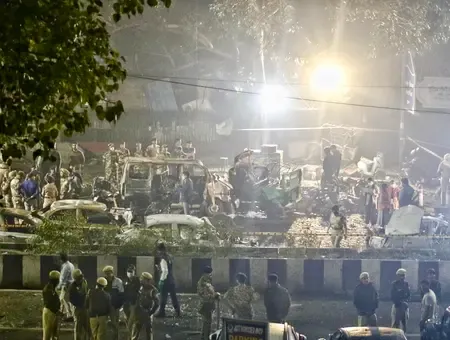Is Pakistan's Economy on the Brink While India Thrives?

Synopsis
Key Takeaways
- Pakistan's foreign exchange reserves are critically low at $15 billion.
- India's forex reserves stand robustly at $688 billion.
- Continued tensions could worsen Pakistan's economic situation.
- Moody's predicts stable macroeconomic conditions for India.
- Pakistan is heavily reliant on IMF support to avoid default.
New Delhi, May 5 (NationPress) BJP leader Amit Malviya recently drew attention to the frailty of Pakistan’s economy, referencing its paltry $15 billion in foreign exchange reserves, a stark contrast to India’s robust $688 billion forex reserves.
“Forex reserves illustrate the narrative: Pakistan's impending bankruptcy vs India’s economic boom,” Malviya remarked on X.
“How long until Pakistan's limited billions evaporate? Numerous Indian corporations, both in the public and private sectors, have revenues that far exceed $15 billion,” said the BJP’s head of Information and Technology.
“While Pakistan struggles to provide for its citizens, its military leaders are preoccupied with fantasies of becoming Ghazis,” Malviya added.
On the international front, ratings agency Moody’s indicated that India’s macroeconomic landscape remains stable, even amidst rising tensions with Pakistan following a tragic terror incident in Pahalgam that claimed the lives of 26 tourists.
However, any continued escalation in tensions with India is likely to negatively affect Pakistan’s economy and obstruct the ongoing fiscal consolidation efforts of its government, according to Moody’s analysis.
The report also mentions that amid increased geopolitical tensions, further conflicts could restrict access to external financing and intensify pressure on Pakistan’s foreign exchange reserves, which, at just above $15 billion, are significantly below the level needed to satisfy upcoming external debt obligations.
In contrast, India’s reserves are strong, surpassing $688 billion. Moody’s highlights that India’s macroeconomic stability is supported by solid public investment and resilient private consumption, despite the potential for increased defense spending to slow fiscal consolidation.
The report emphasizes that India’s macroeconomic conditions remain stable, underpinned by moderate yet high growth rates, bolstered by strong public investments and robust private consumption.
“In a scenario where localized tensions persist, we do not foresee significant disruptions to India’s economic activities, given its minimal economic ties with Pakistan (less than 0.5 percent of India’s total exports in 2024).
Conversely, Pakistan faces a dire economic situation. The nation teetered on the edge of sovereign default in 2023 and required a $3 billion bailout from the IMF. It remains heavily reliant on this financial support and is urgently seeking an additional $1.3 billion for climate resilience.









